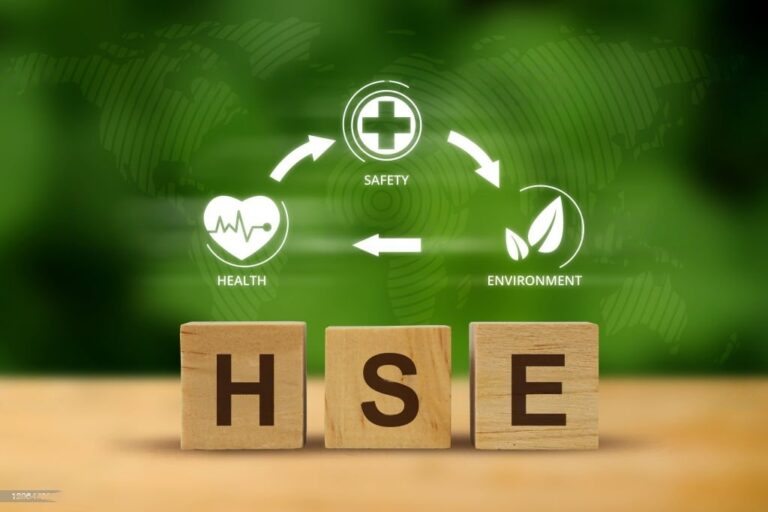HSE Officer – In the hotel industry, the job role of Health, Safety, and Environment (HSE) officers is crucial to ensure the well-being of guests and employees. HSE officer are responsible for implementing and monitoring safety protocols, conducting risk assessments, and ensuring compliance with health and safety regulations. To enhance their expertise and credibility, HSE officers in the hotel industry can pursue various certifications that validate their knowledge, job and skills in this field. Let’s explore some prominent certifications and HSE job roles:
Must Certifications and Training for HSE Officers
1. NEBOSH International General Certificate in Occupational Health and Safety
This certification provides a comprehensive understanding of occupational health and safety principles. HSE officers with this certification can effectively identify hazards, conduct risk assessments, and implement control measures to ensure a safe environment for guests and employees.
2. Certified Safety Professional (CSP)
The CSP certification is globally recognized and demonstrates proficiency in safety management. HSE officers with this certification have expertise in hazard control, emergency preparedness, and safety program development.
Job Roles: Safety Manager, Safety Consultant, Compliance Officer
3. Occupational Health and Safety Assessment Series (OHSAS 18001/ISO 45001)
This certification focuses on occupational health and safety management systems. HSE officers with this certification can develop and implement effective safety management systems in hotels, ensuring compliance with international standards.
Job Roles: HSE Systems Manager, Compliance Manager, Audit Officer
4. Certified Industrial Hygienist (CIH)
The CIH certification focuses on recognizing, evaluating, and controlling workplace health hazards. HSE officers with this certification have expertise in areas such as chemical exposure, indoor air quality, and noise control.
Job Roles: Industrial Hygienist, Environmental Health Specialist, Occupational Health Specialist
5. Construction Health and Safety Technician (CHST)
The CHST certification is specific to HSE professionals working in the construction industry. It covers construction-related hazards, safety regulations, and best practices.
Job Roles: Construction Safety Manager, Site Safety Coordinator, Construction Safety Inspector
6. Certified Environmental, Safety & Health Trainer (CET)
The CET certification is designed for HSE officers involved in training and education. HSE officers with this certification can develop and deliver effective safety training programs, ensuring employees receive the necessary knowledge and skills to work safely.
Job Roles: HSE Trainer, Safety Training Coordinator, Training and Development Specialist
These certifications provide HSE officers in the hotel industry with the necessary knowledge and skills to effectively manage safety and ensure compliance with regulations. They play critical roles in promoting a culture of safety, preventing accidents and injuries, and maintaining a secure environment for guests and employees.
Implementation of Safety Practices in Hotels by the HSE team
Ensuring the safety and well-being of guests is a top priority for hotels worldwide. To achieve this, hotels implement a range of detail-oriented and technical safety practices.
1. Emergency Preparedness and Response
Hotels are well-prepared to handle emergency situations through comprehensive emergency preparedness and response plans. These plans are developed in collaboration with safety experts and are customized to the specific needs of each property. They include detailed evacuation procedures, emergency communication protocols, and staff training to ensure a swift and organized response in case of emergencies such as fires, natural disasters, or medical incidents.
2. Fire Safety Measures
Hotels adhere to strict fire safety regulations to mitigate the risk of fire and ensure the safety of guests and staff. Fire detection and suppression systems, including smoke detectors, sprinkler systems, and fire alarms, are installed throughout the property.
Regular inspections and maintenance of these systems are conducted to ensure their optimal functionality. Hotels also conduct fire safety drills and train employees on evacuation procedures and the proper use of fire extinguishers.
3. Security Measures
Hotels prioritize the security of their guests by implementing robust security measures. This includes the presence of trained security personnel who monitor the premises 24/7. Access control systems, such as key card entry and CCTV surveillance, are employed to restrict unauthorized entry and enhance overall security. Well-lit parking areas, perimeter fencing, and security patrols further contribute to a secure environment.
4. Health and Hygiene Protocols
In recent times, hotels have placed significant emphasis on health and hygiene protocols to combat the spread of infectious diseases. Rigorous cleaning and disinfection practices are implemented; Special attention is given to frequently touched objects, such as door handles, elevator buttons, and handrails, which are regularly sanitized using approved disinfectants.
Hotels have also adopted enhanced ventilation systems to improve indoor air quality. Regular maintenance and filter replacements are carried out to ensure the optimal functioning of HVAC systems and the circulation of fresh air.
To further prioritize the health and well-being of guests, hotels have implemented hygiene practices such as hand sanitization stations throughout the property. They also promote regular handwashing and provide clear signage to encourage proper hygiene practices. Some hotels have incorporated contactless technologies, including contactless check-in and check-out processes, digital menus, and cashless payment options, to minimize physical contact and enhance guest safety.
Staff Training and Education
The implementation of safety practices is only effective when staff members are well-trained and educated. Hotels invest in comprehensive training programs to equip their employees with the necessary knowledge and skills to uphold safety standards. Staff members receive training on emergency response protocols, fire safety procedures, first aid, and CPR.
They are also educated on health and hygiene practices, including proper cleaning techniques, the correct use of personal protective equipment (PPE), and the importance of maintaining a safe and secure environment for guests.
